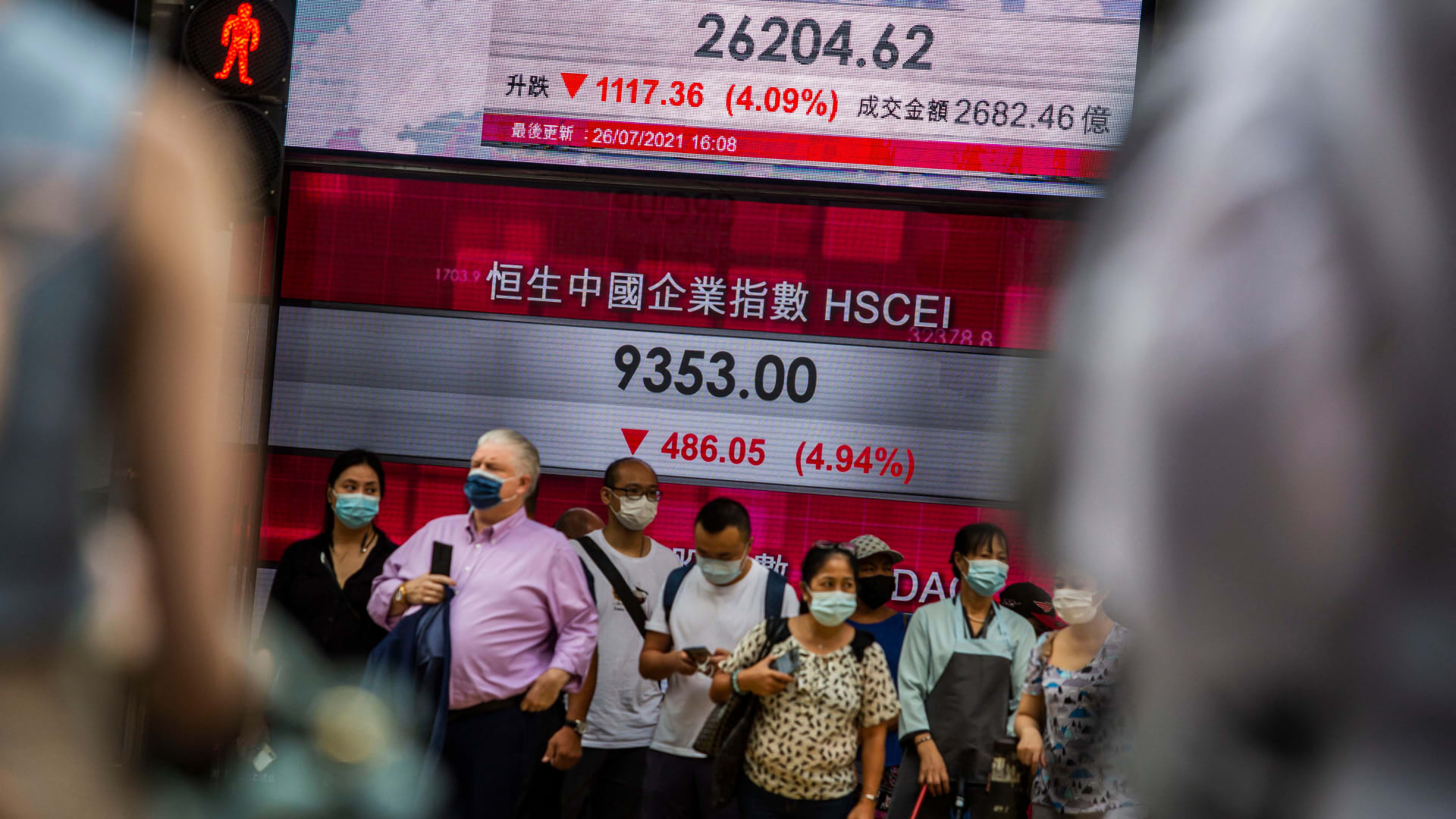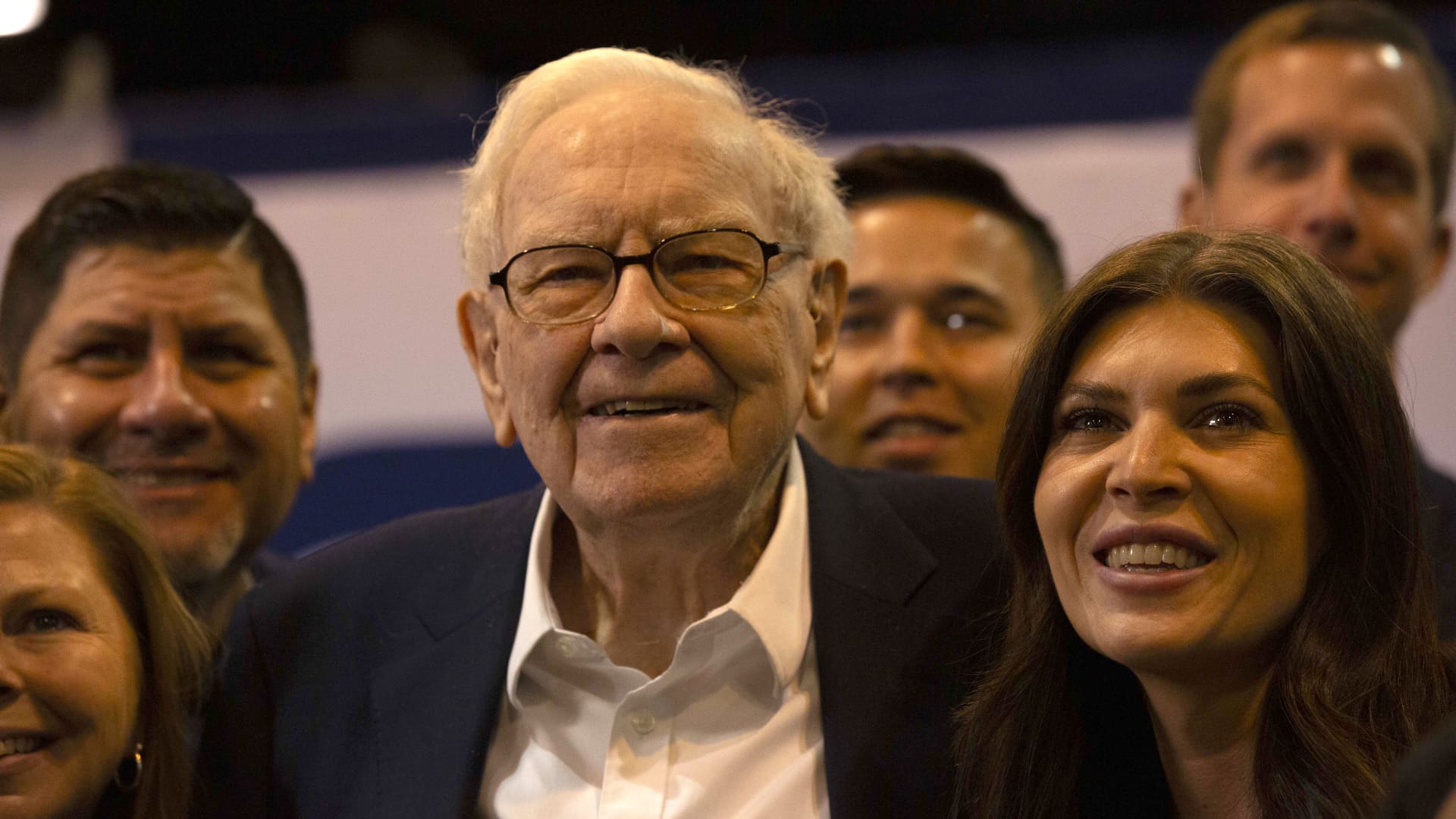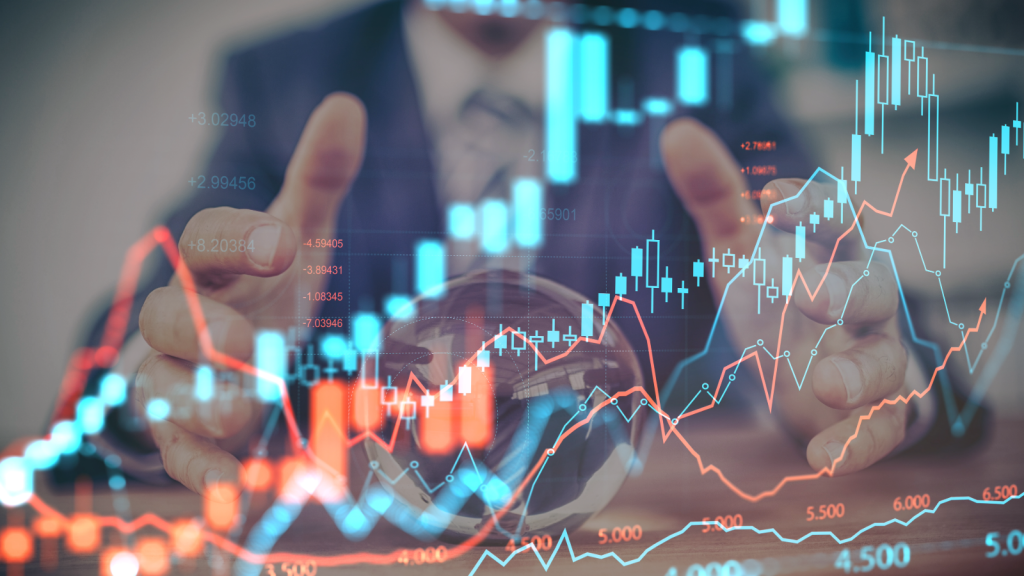South Korea’s Kospi in bear market as Trump’s country-specific tariffs kick into high gear

People standing in front of an electronic display showing the Hang Seng Index in the Central district of Hong Kong on July 26, 2021, after stocks plunged as tuition firms were hammered by China’s decision to reform the private education sector by preventing them from making profits.
Isaac Lawrence | AFP | Getty Images
Asia-Pacific markets fell on Wednesday as U.S. President Donald Trump’s country-specific tariffs comes into effect.
Australia’s S&P/ASX 200 slid 1.8% to close at 7,375.
Japan’s Nikkei 225 lost 3.93% to end the trading day at 31,714.03, while the Topix traded 3.4% lower to end at 2,349.33. South Korea’s Kospi edged 1.74% lower to 2,293.7. The benchmark has lost over 20% from its July high, confirming a bear market. The small-cap Kosdaq closed 2.29% lower.
Hong Kong’s Hang Seng Index climbed 0.68% to close at 20,264.49, while the Hang Seng Tech Index added 2.64%. China’s CSI 300 rose 0.99% to close at 3,686.79.
Additional Trump tariffs have come into effect, adding to the 10% baseline duty that was already implemented on Saturday. Chinese goods will now face a cumulative tariff rate of 104%.
India’s central bank cut its policy rate by 25 basis points to 6%, in line with expectations from analysts polled by Reuters. India’s Nifty 50 fell 0.39%.
Overnight in the U.S., the three major averages closed lower. The Dow Jones Industrial Average dropped 320.01 points, or 0.84%, and closed at 37,645.59, bringing its four-day loss on tariff angst to more than 4,500 points. Apple led the losses with the iPhone maker’s costs set to surge with new China tariffs.
The S&P 500 declined 1.57% to end at 4,982.77. The index was inches away from closing in a bear market, down nearly 19% from its February record, and it ended the session below 5,000 for the first time since April 2024. Over the past four days, the S&P 500 has fallen more than 12%.
— CNBC’s Hakyung Kim and Sean Conlon contributed to this report.










